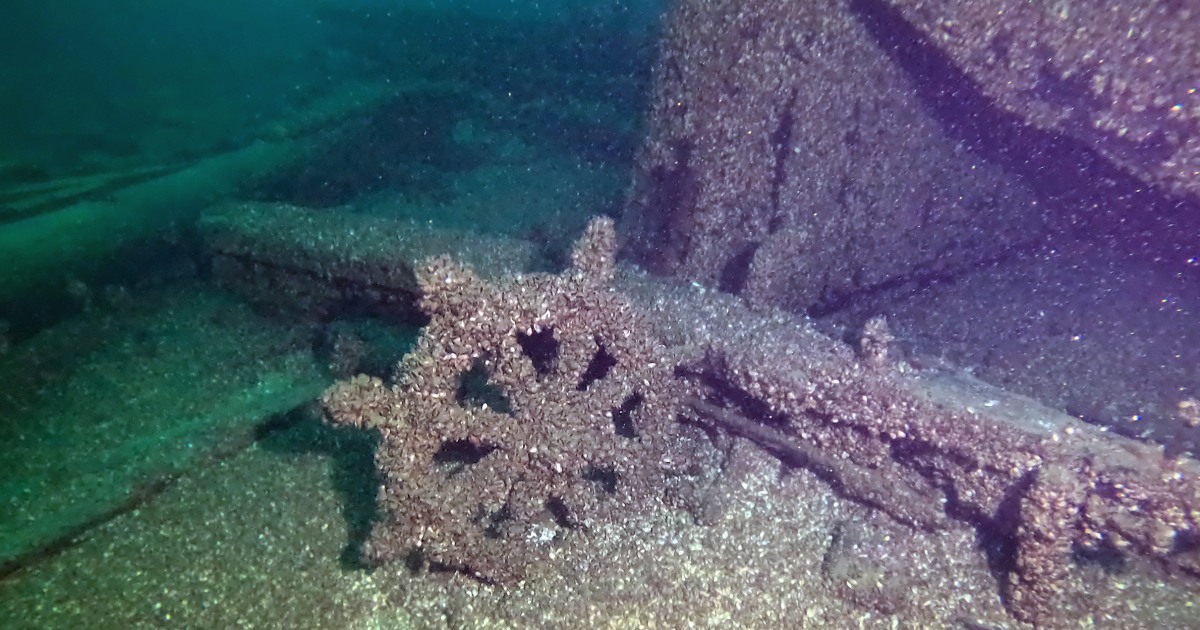Could a 140-Year-Old Ghost Ship Be Found in Lake Michigan?

Published: 2025-09-16 02:27:19 | Category: Trump GNEWS Search
The recent discovery of the wreckage of the F.J. King, a cargo schooner that sank off the Wisconsin coastline in 1886, marks a significant milestone in maritime archaeology. The ship, lost for nearly 140 years, was found by a team led by Brendon Baillod, providing closure to a long-held mystery.
Last updated: 02 October 2023 (BST)
Background on the F.J. King
The F.J. King was a 144-foot three-masted cargo schooner, constructed in 1867 in Toledo, Ohio. Designed to transport goods such as grain and iron ore, it played a vital role in the shipping industry of its time. The vessel was lost during a fierce storm on 15 September 1886, while navigating the tumultuous waters of Lake Michigan. The ship was transporting iron ore from Escanaba, Michigan, to Chicago when disaster struck.
Key Takeaways
- The F.J. King sank during a storm on 15 September 1886.
- It was found less than half a mile from the reported location by a lighthouse keeper.
- The wreckage was discovered on 28 June 2023 by a team led by Brendon Baillod.
- The hull of the ship appears surprisingly intact.
- This discovery adds to the growing list of shipwrecks found in recent years by archaeological teams in Wisconsin.
The Historic Storm and Sinking
On the evening of 15 September 1886, the F.J. King encountered a violent gale off Wisconsin's Door Peninsula. Waves reached heights of 8 to 10 feet, which ruptured the ship's seams, leading to significant water ingress. Despite the crew’s efforts to pump out the water, Captain William Griffin ultimately ordered his men into the yawl boat as the vessel succumbed to the storm.
By 2 a.m., the F.J. King sank bow-first into the depths of Lake Michigan, with the ship's stern deckhouse blown away in the tempest. Remarkably, the crew was rescued by a passing schooner shortly after the sinking, but the fate of the F.J. King remained unknown for over a century.
The Search for the F.J. King
The hunt for the F.J. King began in earnest during the 1970s, spurred by stories and reports from fishermen and lighthouse keepers. Captain Griffin’s account placed the wreck approximately five miles off Bailey's Harbor, but conflicting reports muddied the waters regarding its actual location. Over the decades, various shipwreck hunters scoured the area but were consistently met with disappointment.
Challenges in Finding the Wreck
Search efforts faced numerous challenges, including:
- Conflicting Accounts: Discrepancies between Griffin’s report and the observations of the lighthouse keeper complicated the search.
- Commercial Fishermen's Claims: Fishermen occasionally reported finding pieces of the wreck, but these claims did not lead to significant discoveries.
- Technological Limitations: Earlier search efforts lacked the advanced technology available today, such as side-scan sonar.
The Discovery of the Wreck
In June 2023, following decades of searching, Baillod and his team finally uncovered the wreckage of the F.J. King. By drawing a 2-square-mile grid around the location suggested by the lighthouse keeper, they employed side-scan sonar technology to locate the ship. An object measuring approximately 140 feet long, discovered less than half a mile from the lighthouse keeper's reported sighting, turned out to be the long-lost F.J. King.
Reactions to the Discovery
The announcement of the discovery elicited joy and disbelief among the team members. Baillod expressed the surreal nature of the find, stating, "A few of us had to pinch each other. After all the previous searches, we couldn't believe we had actually found it, and so quickly."
To their surprise, the hull of the ship appeared to be largely intact, which contradicted their expectations given the weight of the iron ore the vessel was carrying when it sank.
Significance of the Discovery
The discovery of the F.J. King is not just an archaeological achievement; it also serves as a reminder of the maritime history and shipwrecks that litter the Great Lakes. This find adds to the rich narrative of shipping in the region and the dangers faced by those who traversed its waters.
Recent Trends in Shipwreck Discoveries
The successful retrieval of the F.J. King adds to a series of significant discoveries made by the Wisconsin Underwater Archeology Association in recent years. In early 2025, they located the steamer L.W. Crane in the Fox River at Oshkosh, alongside the tugboat John Evenson and the schooner Margaret A. Muir off Algoma. Additionally, Baillod uncovered the wreck of the schooner Trinidad off Algoma in 2023.
Preservation and Future Research Opportunities
With the discovery of the F.J. King, opportunities for preservation and further research abound. The wreck site can provide invaluable insights into maritime history, shipbuilding, and life at sea during the late 19th century.
As archaeologists and historians continue to study the wreck, they will likely uncover more details about the vessel's construction and its operational history. This research could lead to enhanced understanding of the challenges faced by ships in the Great Lakes during the 1800s.
Conclusion
The F.J. King serves as a poignant reminder of the tumultuous history of maritime navigation on the Great Lakes. Its long-lost wreckage, finally discovered after decades of searching, enriches the maritime narrative of Wisconsin and offers an opportunity for deeper exploration into the past. What other mysteries lie beneath the surface of our lakes, waiting to be uncovered?
#FJKing #ShipwreckDiscovery #MaritimeHistory
FAQs
What was the F.J. King?
The F.J. King was a three-masted cargo schooner that sank in Lake Michigan in 1886 during a severe storm. It was primarily used for transporting grain and iron ore.
When was the F.J. King discovered?
The wreckage of the F.J. King was found on 28 June 2023 by a team led by researcher Brendon Baillod.
Where was the F.J. King found?
The wreck was discovered less than half a mile from the location reported by a lighthouse keeper, off Bailey's Harbor on Wisconsin's Door Peninsula.
What challenges did searchers face in finding the F.J. King?
Searchers faced conflicting reports about the ship's location, claims by fishermen, and technological limitations in earlier search efforts.
Why is the discovery of the F.J. King significant?
The discovery enriches the maritime history of the Great Lakes and provides opportunities for preservation and further research into 19th-century shipbuilding and navigation.



